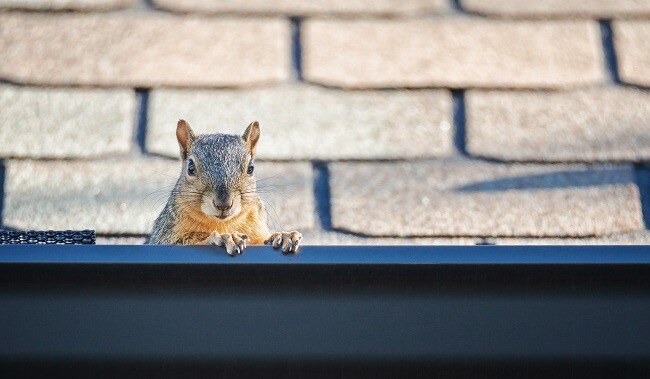
Squirrels in Virginia
The Virginia Department of Wildlife Resources recognizes five species of squirrels within the state. There are northern and southern flying squirrels, fox squirrels, red squirrels, and most seen raiding neighborhood bird feeders, eastern gray squirrels. Whether you love them or hate them, they have fascinating life cycles and clever winter behaviors.
Squirrels have excellent memories, an essential element in retrieving food buried months earlier in hundreds of different locations. While they prefer to nest and shelter in trees, these adaptable critters are happy to cohabitate with you on farms and in suburban and urban neighborhoods and parks. Years of home insurance experience tell us they can also cause surprising damage to a home. We'll tell you what to look out for and how to protect your home.
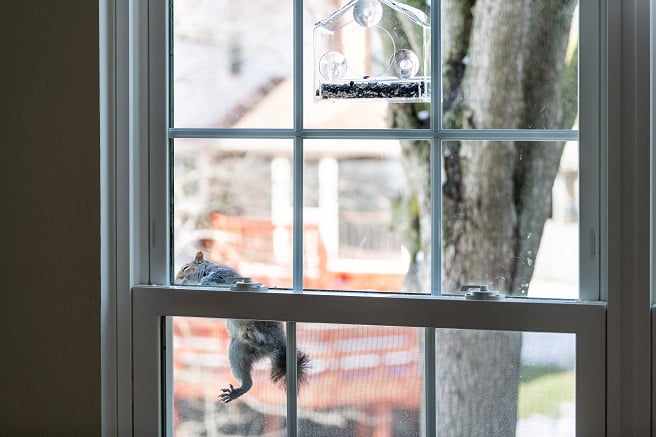
Can squirrels get in your attic?
Problems really arise as squirrels enter your home seeking food, warm shelter, and nesting areas. Home attics provide great shelter for birds, squirrels, and other animals, primarily for building nests. If your home has easy access points, squirrels will have an invitation to come indoors and attempt to set up housekeeping.
Squirrels typically begin searching for nesting sites in late winter and have babies anytime from February to October- no wonder there are so many of them! If they find a way in, these diurnal rodents will make sounds inside your walls, attic, or chimney in the daytime as they come and go.
How do squirrels get into your home?
Nesting squirrels and other animals can find gaps as small as two by two inches near the roofline, such as exterior eaves, unscreened vents, and loose or rotten trim boards. They will enlarge smaller holes by chewing to enter if needed.
Signs you may have squirrels in your home
The most common sign you have rodents or squirrels in your home:
- Strange noises that sound like scurrying, scampering, chewing in your walls or attic, or the sound of acorns or nuts rolling around in your attic, especially when your home is the quietist.
- Signs of excessive chewing in your attic or crawl space.
- Seeing or smelling squirrel waste such as small tubular pellets and ammonia-like urine. You may notice watermarks on your walls from urine.
- Smelling a very bad odor in your home. Squirrels and rodents can die inside a wall or attic space they an not escape, which can result in a foul smell in your home that slowly goes away.
How do squirrels damage your home?
Squirrels, like raccoons and mice, will chew through nearly any material. If you see any gnaw marks along your eaves or holes in your shingles, you may have a squirrel living in your house. You may not notice damage in your attic, but you should examine the exterior of your home regularly for signs of excessive chewing. You might find holes in your shingles or other exterior damage.
Squirrels can also damage electrical wiring, insulation, and other materials. Damage to electrical wiring in your home can create a dangerous fire hazard. It’s always a good idea to have an experienced professional examine your home if you suspect any animal is living inside.
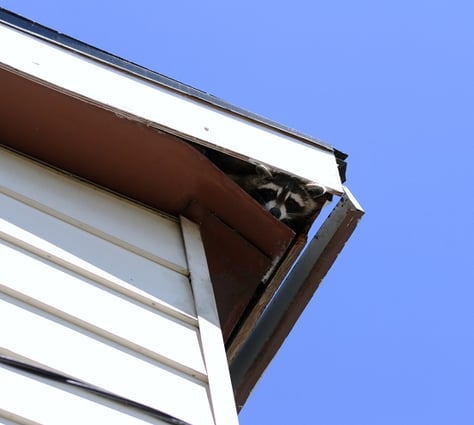
How to get squirrels out of your attic
If babies are present in your home's attic, a mother squirrel is most likely coming and going to care for the babies. It is illegal to trap and relocate Virginia wildlife off your property. In addition, mother squirrels won't realize their babies have been removed and will do tremendous damage reentering your home to find them. Relocated baby squirrels will not survive and require care if separated from their mother.
If you are able, wait until the babies are 8-10 weeks old before you attempt to close off the mother's entrance and exit to your home. Once they are old enough to leave and you no longer hear noise and can determine all squirrels in the nest have gone, seal the entrance to prevent subsequent nesting. If you can not wait, hire a humane animal removal professional that will properly relocate the family.
Squirrels may also enter your home's chimney and get trapped. If you hear sounds from your fireplace, keep the damper closed and call a humane pest removal professional.
How to prevent squirrels from getting into your house
Have your roof and attic inspected annually by a professional for signs of critters and have things sealed up if needed. Have the inside of your attic thoroughly inspected for openings. If there is no obvious way into the attic and you are noticing signs of animal activity, ask to have the exterior eaves, vents, and your roof inspected.
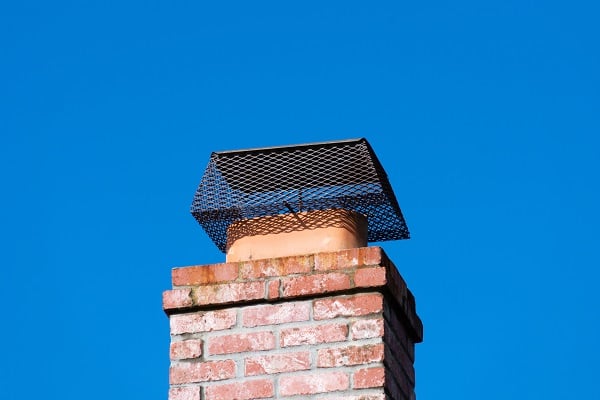
Make sure your chimney opening has a vent guard or animal control screen to keep birds, bats, and squirrels from entering. If you hear activity in your chimney, making noise from the fireplace side may scare the uninvited guest away. Then have your chimney serviced by a local certified chimney sweep.
More tips to protecting your home from squirrels:
- Remove food sources such as birdseed, pet food, and even trash, or keep it well-contained.
- Dogs are a great deterrent-just give the squirrel enough lead time!
- Use squirrel guards on your birdfeeders.
- Use an owl decoy and move it from time to time.
- Keep trees pruned closest to home.
- Plant mint and use natural repellents such as cayenne pepper.
- Clean out your attic- clothing items and cardboard are attractive nesting materials.
Avoid the use of poisons or inhumane glue traps. Poisons cause secondary poisoning to raptors and other natural predators. Never intentionally build a fire in a chimney to "smoke out" an animal that may be trapped.
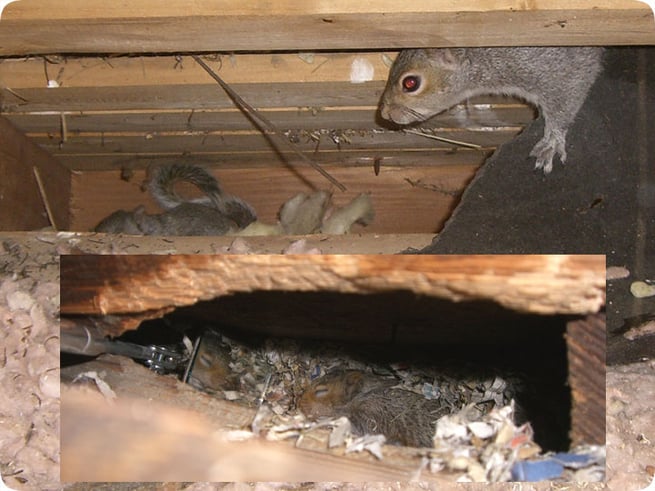
Is squirrel damage covered by home insurance?
Squirrels may be resourceful, but regular inspection and maintenance of your home can keep their foraging and nesting outside. Since damage from wildlife is preventable, it is not covered by standard homeowners insurance. If you do notice or hear squirrel activity in your home, addressing it properly can mitigate future problems and costly repairs.
Learn more about homeowners insurance in Virginia >
Sources:
https://dwr.virginia.gov/wildlife
THE NORTHERN NECK INSURANCE INTEGRITY PROMISE — We pledge to provide straight talk and good counsel from our NNINS Virginia insurance experts through our blog. While we hope you find this to be a helpful source of information, it does not replace the guidance of a licensed insurance professional, nor does it modify the terms of your Northern Neck Insurance policy in any way. All insurance products are governed by the terms in the applicable insurance policy.

